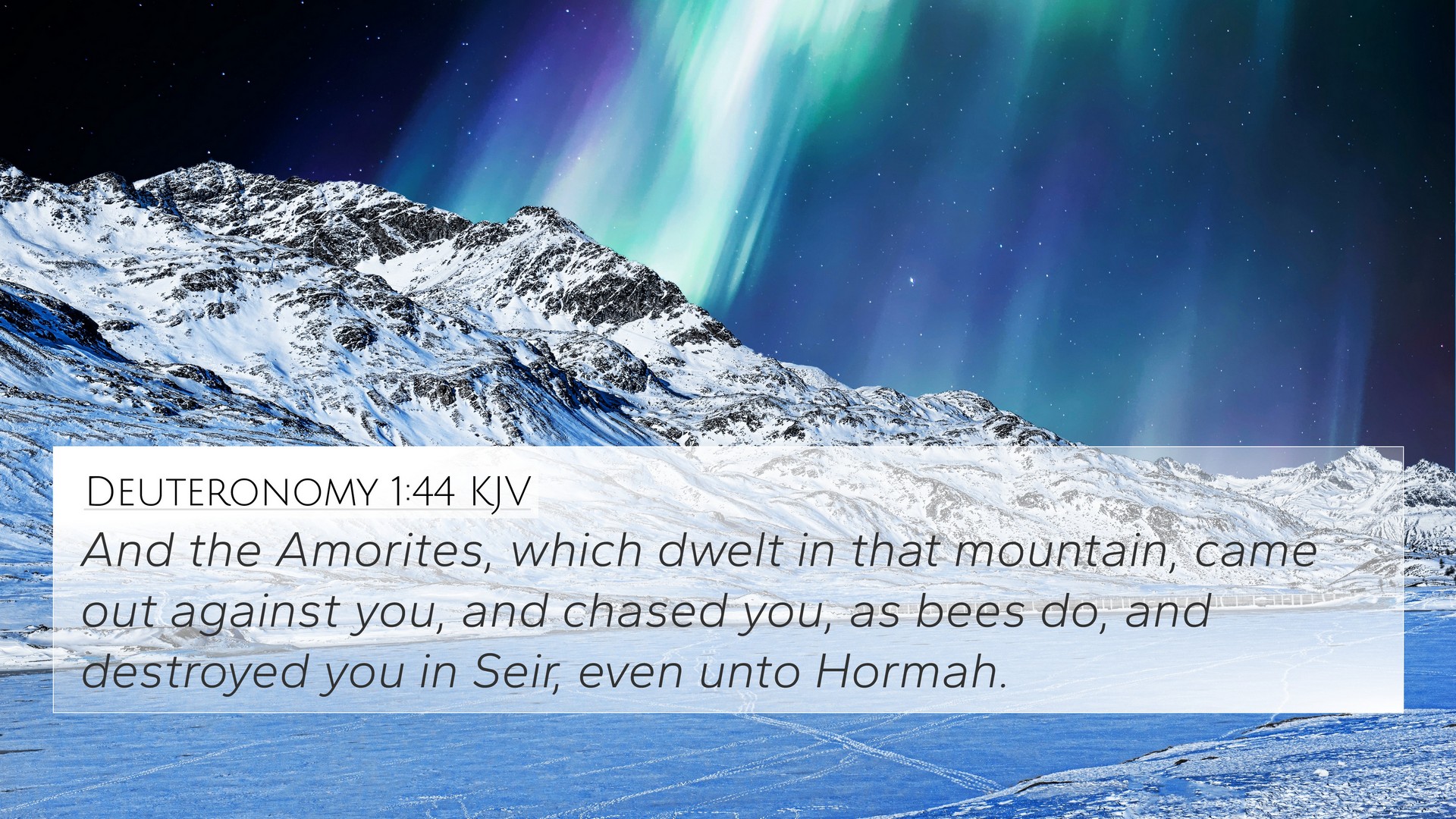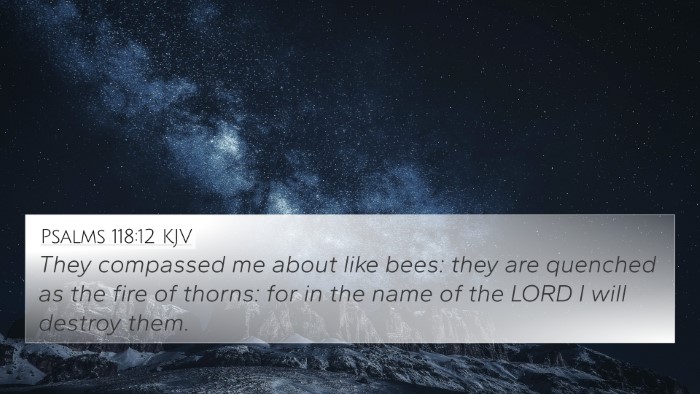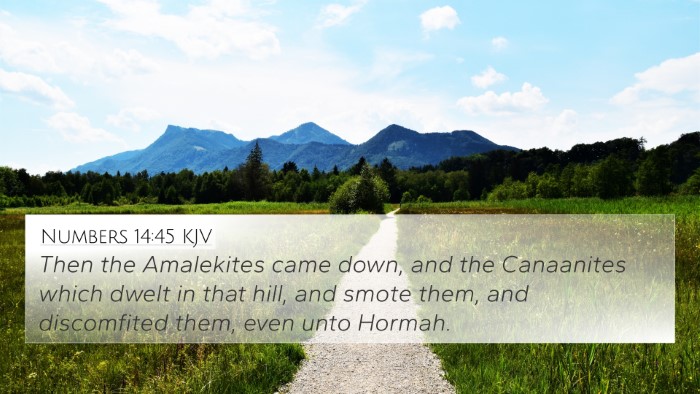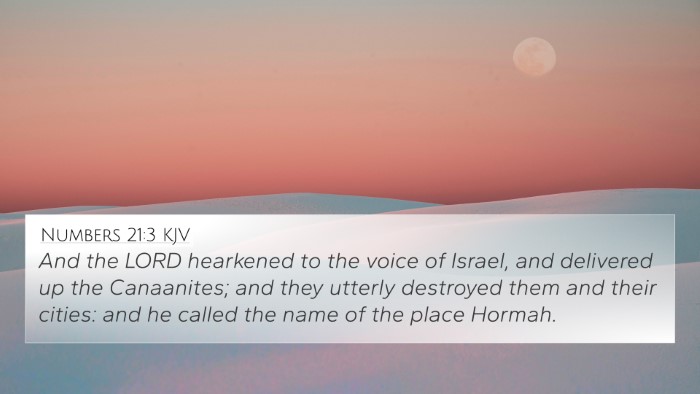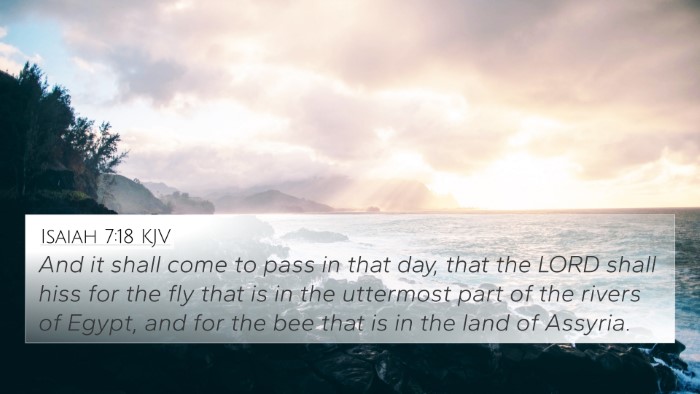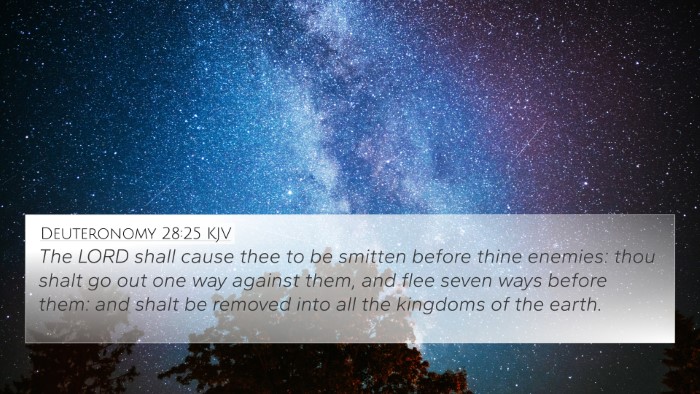Understanding Deuteronomy 1:44
Bible Verse: Deuteronomy 1:44
Verse: "And the Amorites, which dwelt in that mountain, came out against you, and chased you, as bees do, and destroyed you in Seir, even unto Hormah."
Summary of Insights
This verse recounts the historical encounter between the Israelites and the Amorites during their journey to the promised land. The Amorites, described here with a vivid simile, illustrate the ferocity and overwhelming nature of the attack they mounted against the Israelites. The verse serves as a somber reminder of the consequences of disobedience and lack of faith in God's promises.
Interpretation and Analysis
The account in Deuteronomy 1:44 has significant theological implications that can be explored through various public domain commentaries:
-
Matthew Henry: Henry emphasizes the folly of the Israelites in reversing their earlier confidence in God's promise. They had received clear guidance to enter the land, yet turned away due to fear. The Amorite attack symbolizes the dire consequences of doubt and rebellion against divine instruction.
-
Albert Barnes: Barnes notes the analogy of bees, indicating both the swiftness and sheer number of the Amorites. This vividly illustrates that the attack was cooperative and relentless, which mirrors how the Israelites often felt surrounded by trials and overwhelming challenges in their faith journey.
-
Adam Clarke: Clarke points out the geographical and historical context, noting how the location mentioned—Seir—was significant as it represented both a physical challenge and symbolic of the spiritual warfare the Israelites faced. He discusses the implications of their defeats in the wilderness, urging a focus on faith and obedience.
Cross-References with Deuteronomy 1:44
Understanding Deuteronomy 1:44 benefits from examining related scriptures. Here are several pertinent Bible cross-references:
- Exodus 23:22: Highlights God's promise to defeat the enemies of Israel and assures His support in their battles.
- Numbers 14:45: Describes the defeat of the Israelites at Hormah when they attempted to enter the land without God's blessing.
- Joshua 10:12-14: Provides further context of God’s power during battles, emphasizing His active involvement in Israel’s military endeavors.
- Psalm 118:12: Draws a parallel about the overwhelming nature of the enemy, likening them to bees, which resonates with the imagery in Deuteronomy 1:44.
- Deuteronomy 7:1: Discusses God’s command to Israel concerning their battle with the nations, providing insight into the divine strategy for conquest.
- 1 Peter 5:8: When viewed thematically, it parallels the idea of being vigilant and aware of spiritual adversaries, akin to the physical foes faced by Israel.
- Isaiah 41:10: God’s reassurance to His people about not fearing adversaries reflects the similar assurances given during the Israelites’ journey.
Thematic Connections
From these cross-references, we can derive a deeper understanding of key themes:
- Obedience to God’s Command: The connection between faith and the fulfillment of God’s promises is evident.
- Divine Protection: God’s role in battles signifies His active involvement in guiding and safeguarding His people.
- Consequences of Fear: The Israelites’ fear reflects a common theme in scripture that warns against the lack of faith.
Conclusion
Understanding Deuteronomy 1:44 requires delving into both its immediate context and its broader scriptural connections. By engaging with the insights of various commentaries and recognizing the thematic connections throughout the Bible, we can glean a richer understanding of this verse and its implications for faith and obedience today.
